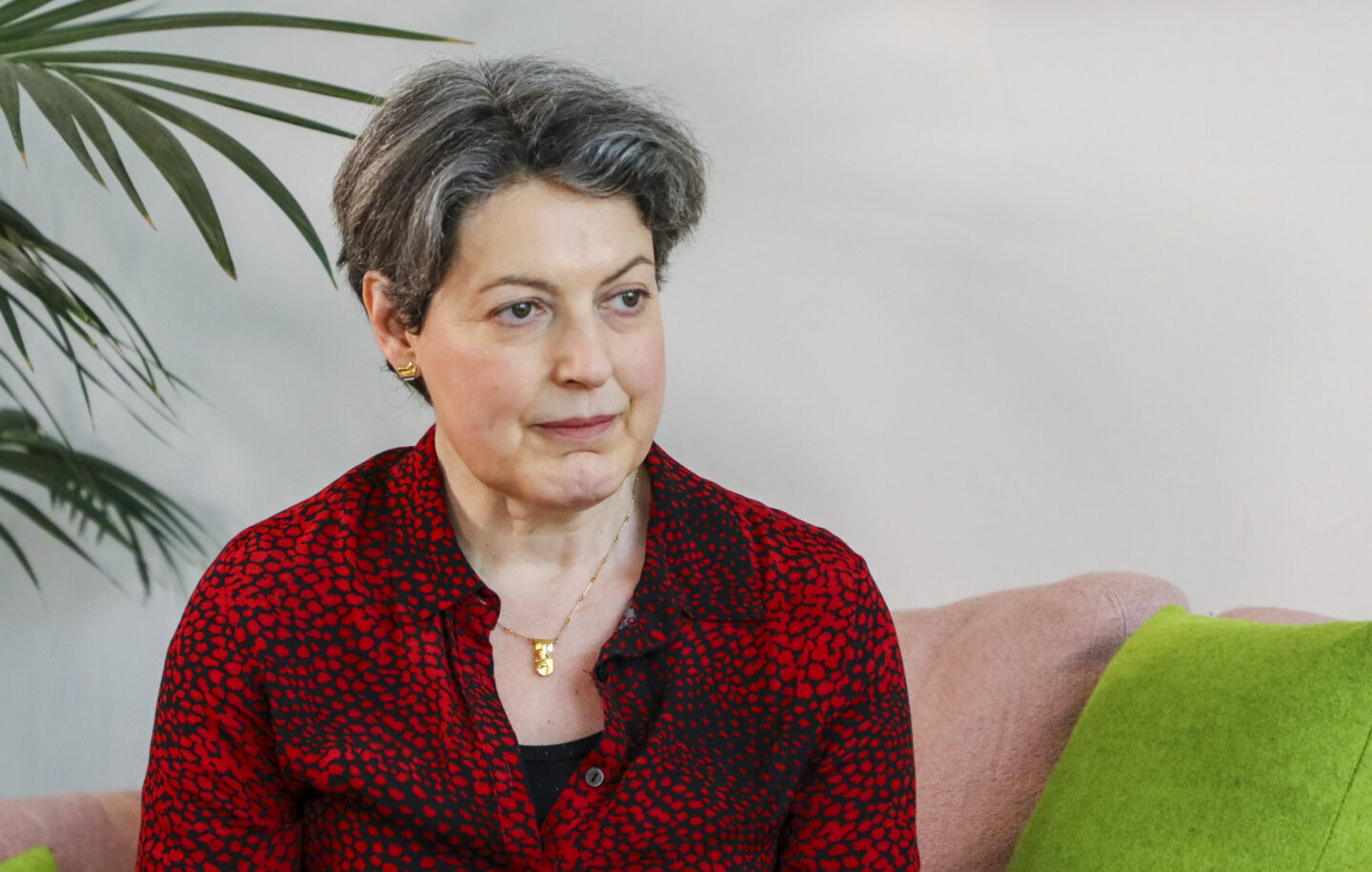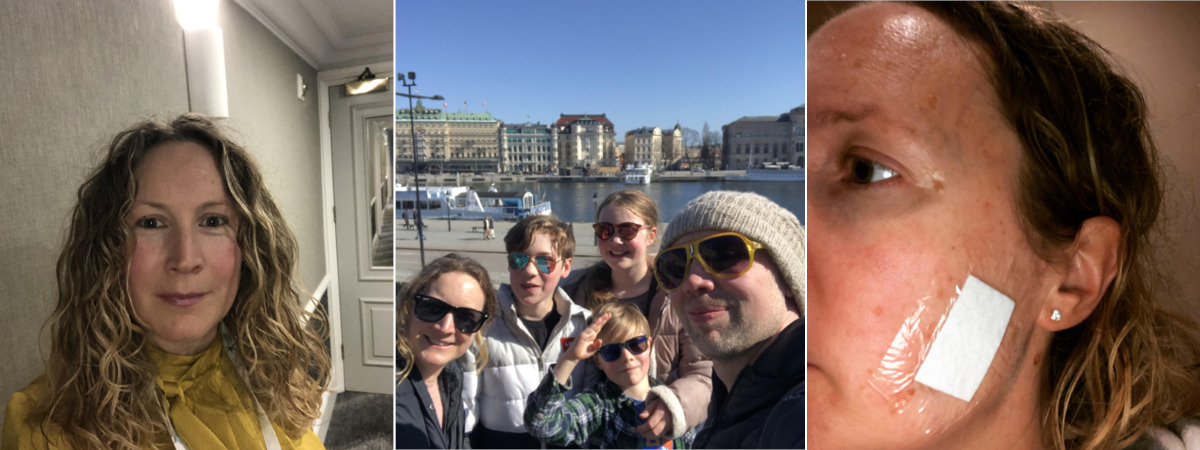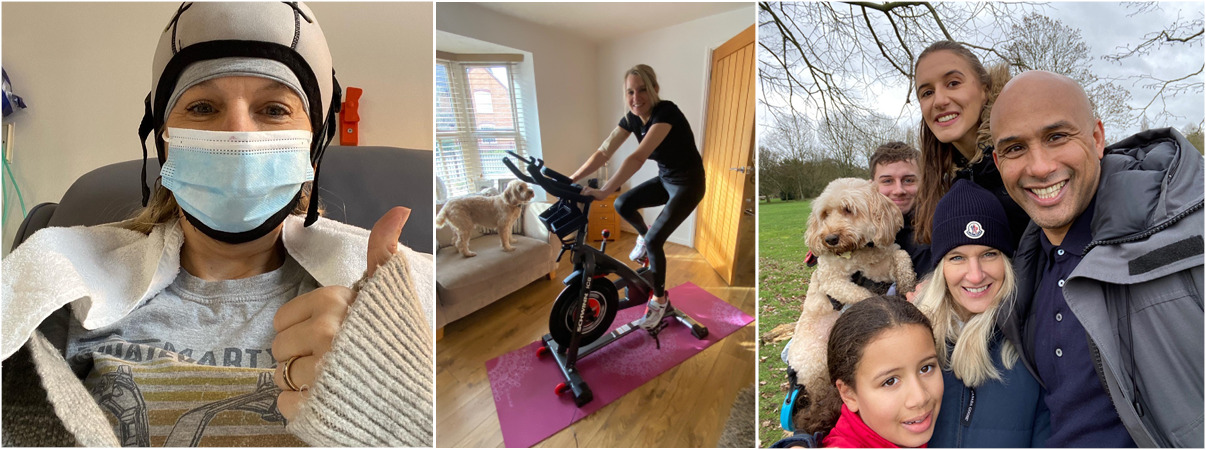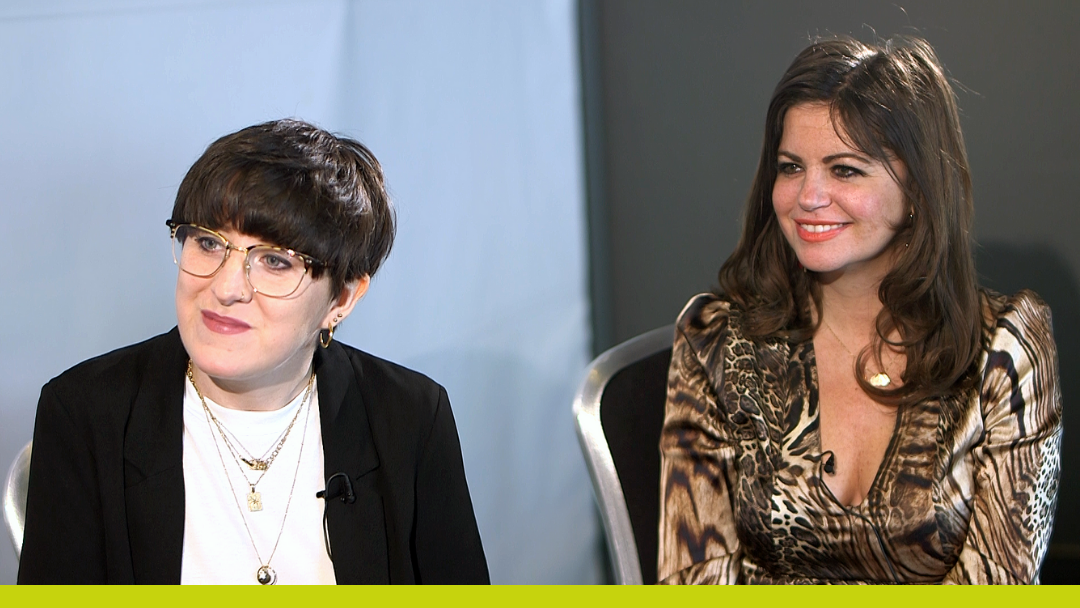I’m Natalie Woodford and I received a primary breast cancer diagnosis in 2007 and was subsequently diagnosed with secondary breast cancer in 2017.
I treasured the ten years I had watching my daughter grow up, being an active family member again and the opportunity to accelerate my career to a senior level. Throughout the ten years, I always thought of the cancer (a mastectomy is a permanent reminder), but I was able to live my life happily.
After my primary diagnosis my consultant told me to take Tamoxifen, and then Letrozole. Though they caused terrible menopausal symptoms – and I admit, I did drip sweat at work. On reflection, I think it would have been useful to have been given recommendations like: keeping my weight down, drinking less, eating well, exercising (we should do this anyway) and watching out for pains in my neck, bones and lungs etc.
After seeking help from my oncologist for severe pains in my neck and shoulders, I was diagnosed with secondary breast cancer in my bones and lungs.
I knew something was wrong as my Park Run times had been getting worse. I had an immediate operation to rebuild my neck as I had spinal compression, then chemotherapy, radiotherapy, and now regular IVs of Trastuzumab (Herceptin), Pertuzumab and injections of Denosimab. Fortunately, these interventions have put me in remission.
In September 2018, I woke up with pains down my left side and went straight to hospital to see if it was a stroke. The scan results showed that the cancer had now metastasised in my brain.
The consultant discussed my options: whole brain radiotherapy or gamma knife radiosurgery. The side effects and implications of brain metastases treatment are significant, so it was important to talk through them with the specialist. I was able to have gamma knife treatment, and because of the huge number of tumours (over 100, but all very small) I had five interventions (5 gamma knife sessions which got rid of the tumours). The treatment made a big difference to me because it made me able to get back to a normal life. I was seeing friends and family, visiting the theatre and exhibitions in London again, travelling in the UK etc. I am now scanned regularly to see how things are progressing and all looks well so far.
Unfortunately, I had a brain problem earlier in the year which resulted in me getting lost, bumping into things, and forgetting how to make my way home. I went to the hospital and an accelerated brain scan showed I had fluid on the brain: a reaction to the first treatment. Steroids helped to get me back to normal quickly, but this was a very scary time for me and my family. I was then given Avastin intravenously to reduce the radiation damage, which although ‘experimental’ for this intervention, seems to have worked well.
I am in regular contact with my GP and the hospice, and I have the medications I need to live my life as pain free as possible. My GP kindly reassured me that the hospice would give me the medication I need at the end of my life. Though I hope that is years away.
My message to healthcare professionals would be:
- Be aware if a patient has had a previous diagnosis of breast cancer and consider secondary spread as a cause of any new, persistent, or worsening symptoms
- Be kind and allow people to cry and express emotions in the consultation room, as well as working through treatment and triaging the many support options
- Make sure physiotherapists know the signs; I can imagine it is easy to assume back and neck problems will go over time which is what I was told.
Too many people living with cancer feel alone, yet, I feel I have “Team Natalie” around me all the time. Everybody is different. I need frank realism balanced with action and hope, whereas some just need a cuddle and pointing in the right direction.
Whatever happens, we need to focus on quality of life and having the right medication to be pain-free and hopefully live life to the fullest for as long as possible”.



